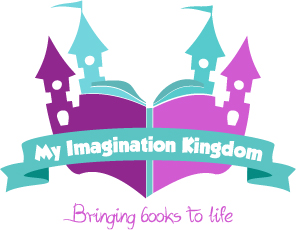What kind of books is your child reading?

Recently, we have seen a significant rise in the popularity of character books for children. Books from the Disney Princesses, Thomas The Train, Dora The Explorer, Barbie...You name a well-known children's TV show/movie or toy series and you're likely to find its equivalent in a book format. Whether it's activity books, sticker books, story books or even music/sound books.
At My Imagination Kingdom, we're huge fans of Walt Disney. He has, after all built a legacy by creating well-loved stories that draw on people's imagination. But yet, we wonder what he might say if he realises that the home libraries of children today are filled with "book adaptations" (from Disney no less) like the examples we have listed above.
"There is more treasure in books than in all the pirates' loot on Treasure Island. And best of all, you can enjoy these riches every day of your life." - Walt Disney
Walt Disney said this, at a time when "book adaptations" were not even invented. As a book lover, he believed that the knowledge and inspiration that books can bring, far exceeds the tangible monetary rewards you could ever receive from other sources. But to fully extricate this value from books, we need to remind ourselves that not all books can serve the same purpose.
Character books, while they're easy to consume for children who have already been exposed to them on TV, are unlikely to do much in helping to widen children's horizons. They merely leverage on the content that has already been written for TV or the big screen. From these content providers' point-of-view, the "book adaptations" are to extend the shelf life of the characters that they have developed in order to ensure that they can continue to reap profits from the original format (e.g. the TV series or toy merchandise). They were not written with the foremost objective of helping children gain literacy, stretch their imagination or be inspired to read more.
So while it's great to stimulate children who may be uninterested in books or reading with these character books at the beginning, it's important that we slowly wean children off these "book adaptations" as time passes. If not, children may never learn to appreciate books in their simplest and purest form. Books that were not based on anything else except the author's passion to tell a story.


